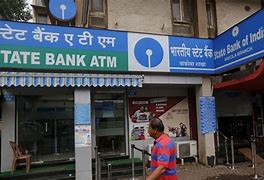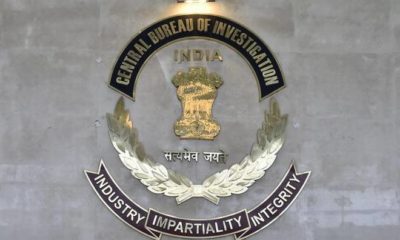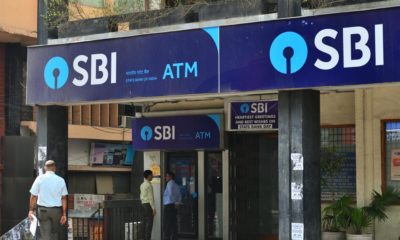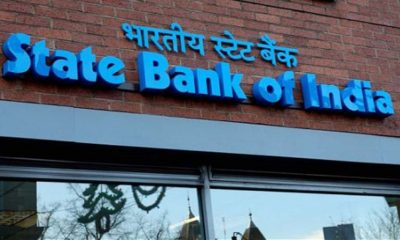Feature
SBI advises customers to use own ATMs
 Kolkata : Following a cyber security breach in the country’s banking system, India’s largest bank, the State Bank of India (SBI), has advised customers to use its own automatic teller machines (ATMs) for safe transactions and is looking to replace within ten days around six lakh debit cards which were blocked by it as a preventive measure, a senior SBI official said on Friday.
Kolkata : Following a cyber security breach in the country’s banking system, India’s largest bank, the State Bank of India (SBI), has advised customers to use its own automatic teller machines (ATMs) for safe transactions and is looking to replace within ten days around six lakh debit cards which were blocked by it as a preventive measure, a senior SBI official said on Friday.
“We have set an internal target of seven to ten days for issuing the new debit cards to the customers whose cards have been blocked,” said SBI Chief General Manager (Kolkata Circle) Partha Pratim Sengupta.
“We advise our customers to use SBI ATMs only at the moment for safe transactions,” he said.
The lender on Wednesday said card network companies NPCI, Mastercard and Visa had informed various banks about a potential risk to some cards owing to a data breach.
“Accordingly, SBI has taken precautionary measures and blocked cards of certain customers identified by the networks. This is a proactive measure to protect our customers from any potential fraud once we came to know of some data breach outside our Bank,” the bank said in a statement, adding that it was in the process of issuing new cards.
The malware-related security breach was reportedly detected in the non-SBI ATM network, following which the public sector lender blocked around six lakh debit cards.
An estimated 30,00,000-plus debit cards issued by various public or private banks are said to have been exposed to a potential risk of data breach.
The bank remains bullish in achieving a high growth in retail lending in Kolkata Circle during this festive season (October to December). “Our retail loan target during the festive season is Rs 1,000 crore. Last year the loan amount was around Rs 700 crore,” Sengupta said.
The bank has been offering lower interest rates and zero processing fees on some of its retail products — home loans, car loans, personal loans and education loans — under its special financing scheme ‘Hope Loans’ during the festive season.
“For every loan sanctioned during this period, the bank will contribute a sum to selected NGOs working in the field of education, health, environment and shelter which will help a disadvantaged person’s dreams come true,” a statement said.
Sengupta said the bank has yet to decide what percentage of the loan amount would be donated to the NGOs.
Entertainment
Meghalaya Reserves Legalized Gambling and Sports Betting for Tourists

The State Scores Extra High on Gaming-Friendly Industry Index
Meghalaya scored 92.85 out of 100 possible points in a Gaming Industry Index and proved to be India’s most gaming-friendly state following its recent profound legislation changes over the field allowing land-based and online gaming, including games of chance, under a licensing regime.
The index by the UK India Business Council (UKIBC) uses a scale of 0 to 100 to measure the level of legalisation on gambling and betting achieved by a state based on the scores over a set of seven different games – lottery, horse racing, betting on sports, poker, rummy, casino and fantasy sports
Starting from February last year, Meghalaya became the third state in India’s northeast to legalise gambling and betting after Sikkim and Nagaland. After consultations with the UKIBC, the state proceeded with the adoption of the Meghalaya Regulation of Gaming Act, 2021 and the nullification of the Meghalaya Prevention of Gambling Act, 1970. Subsequently in December, the Meghalaya Regulation of Gaming Rules, 2021 were notified and came into force.
All for the Tourists
The move to legalise and license various forms of offline and online betting and gambling in Meghalaya is aimed at boosting tourism and creating jobs, and altogether raising taxation revenues for the northeastern state. At the same time, the opportunities to bet and gamble legally will be reserved only for tourists and visitors.
“We came out with a Gaming Act and subsequently framed the Regulation of Gaming Rules, 2021. The government will accordingly issue licenses to operate games of skill and chance, both online and offline,” said James P. K. Sangma, Meghalaya State Law and Taxation Minister speaking in the capital city of Shillong. “But the legalized gambling and gaming will only be for tourists and not residents of Meghalaya,” he continued.
To be allowed to play, tourists and people visiting the state for work or business purposes will have to prove their non-resident status by presenting appropriate documents, in a process similar to a bank KYC (Know Your Customer) procedure.
Meghalaya Reaches Out to a Vast Market
With 140 millions of people in India estimated to bet regularly on sports, and a total of 370 million desi bettors around prominent sporting events, as per data from one of the latest reports by Esse N Videri, Meghalaya is set to reach out and take a piece of a vast market.
Estimates on the financial value of India’s sports betting market, combined across all types of offline channels and online sports and cricket predictions and betting platforms, speak about amounts between $130 and $150 billion (roughly between ₹9.7 and ₹11.5 lakh crore).
Andhra Pradesh, Telangana and Delhi are shown to deliver the highest number of bettors and Meghalaya can count on substantial tourists flow from their betting circles. The sports betting communities of Karnataka, Maharashtra, Uttar Pradesh and Haryana are also not to be underestimated.
Among the sports, cricket is most popular, registering 68 percent of the total bet count analyzed by Esse N Videri. Football takes second position with 11 percent of the bets, followed by betting on FIFA at 7 percent and on eCricket at 5 percent. The last position in the Top 5 of popular sports for betting in India is taken by tennis with 3 percent of the bet count.
Local Citizens will Still have Their Teer Betting
Meghalaya residents will still be permitted to participate in teer betting over arrow-shooting results. Teer is a traditional method of gambling, somewhat similar to a lottery draw, and held under the rules of the Meghalaya Regulation of the Game of Arrow Shooting and the Sale of Teer Tickets Act, 2018.
Teer includes bettors wagering on the number of arrows that reach the target which is placed about 50 meters away from a team of 20 archers positioned in a semicircle.
The archers shoot volleys of arrows at the target for ten minutes, and players place their bets choosing a number between 0 and 99 trying to guess the last two digits of the number of arrows that successfully pierce the target.
If, for example, the number of hits is 256, anyone who has bet on 56 wins an amount eight times bigger than their wager.























